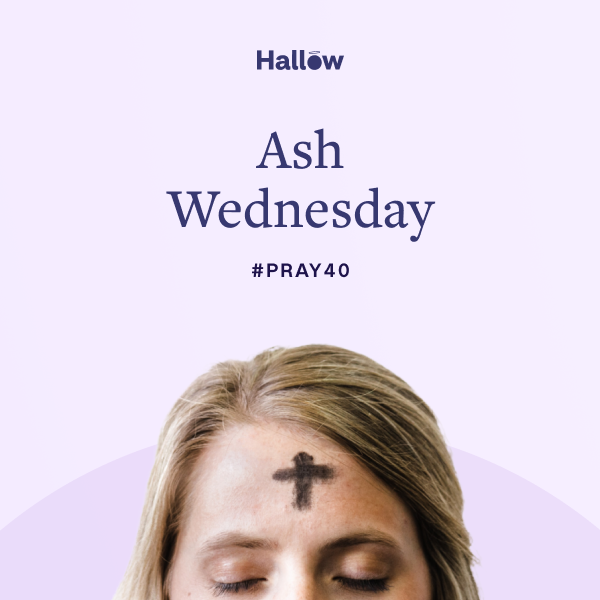
Blog
WP_Post Object
(
[ID] => 434
[post_author] => 3
[post_date] => 2018-10-24 01:30:00
[post_date_gmt] => 2018-10-24 01:30:00
[post_content] => <!-- wp:paragraph {"className":""} -->
<p class="">This post is a continuation of the discussion that began in an earlier blog <a href="https://hallow.com/blog/my-journey-from-atheist-to-maybe-a-christian-pt-1/" target="_blank" rel="noreferrer noopener" aria-label=" (opens in a new tab)">post</a> about my journey toward becoming a Christian. It picks up where the first left off. </p>
<!-- /wp:paragraph -->
<!-- wp:paragraph {"className":""} -->
<p class=""><strong>Jesus</strong></p>
<!-- /wp:paragraph -->
<!-- wp:paragraph {"className":""} -->
<p class="">There was something about this guy that always seemed to resonate with me. Every time I’d heard something from the Gospels, it felt like Jesus was saying something pretty dope, but I never really dug in. I had taken the stance that many do: that He was a great moral teacher, but that I didn’t really buy Him being the Son of the Creator of the universe. And that’s when I started reading another phenomenal book: <a href="https://www.amazon.com/Mere-Christianity-C-S-Lewis/dp/0060652926/ref=sr_1_1?ie=UTF8&qid=1537127675&sr=8-1&keywords=mere+christianity+by+cs+lewis" rel="noreferrer noopener" target="_blank">Mere Christianity by C.S. Lewis</a>.</p>
<!-- /wp:paragraph -->
<!-- wp:paragraph {"className":""} -->
<p class="">Lewis said something that I found tremendously interesting: that if you actually read the Gospels, you find that Jesus said a lot of things that weren’t just moral teachings. In fact, a lot of what He says centers around Him being divine e.g.,<br></p>
<!-- /wp:paragraph -->
<!-- wp:paragraph {"className":""} -->
<p class="">Jesus said to him, "I am the way, the truth, and the life. No one can come to the Father except through me." (John 14:6)</p>
<!-- /wp:paragraph -->
<!-- wp:paragraph {"className":""} -->
<p class="">"Very truly I tell you," Jesus answered, "before Abraham was born, I am!" (John 8:58)</p>
<!-- /wp:paragraph -->
<!-- wp:paragraph {"className":""} -->
<p class="">He said to them, "You are from below; I am from above. You are of this world; I am not of this world.” (John 8:23)</p>
<!-- /wp:paragraph -->
<!-- wp:paragraph {"className":""} -->
<p class="">Jesus said to her, "I am the resurrection and the life. Those who believe in me, even though they die, will live" (John 11:25)</p>
<!-- /wp:paragraph -->
<!-- wp:paragraph {"className":""} -->
<p class="">"I am the resurrection and the life. Those who believe in me, even though they die, will live" (John 11:25)</p>
<!-- /wp:paragraph -->
<!-- wp:paragraph {"className":""} -->
<p class="">Jesus replied, "I am the bread of life. Whoever comes to me will never be hungry again. Whoever believes in me will never be thirsty." (John 6:35)</p>
<!-- /wp:paragraph -->
<!-- wp:paragraph {"className":""} -->
<p class="">Could you imagine me saying those things to you today? You’d think I was insane.</p>
<!-- /wp:paragraph -->
<!-- wp:paragraph {"className":""} -->
<p class="">What if you stole something from your friend and then came to me, and I said ‘Oh don’t worry, I forgive you for it.’ What a ridiculous statement that would be. How could I possibly forgive you for wrongs against someone else? The only way that would make any sense was if I was the person primarily wronged. If I was in some sense the main counter-party in every wrong. It would only make sense if I was God. This was what Lewis explains when he writes:</p>
<!-- /wp:paragraph -->
<!-- wp:quote {"className":""} -->
<blockquote class="wp-block-quote"><p>“I am trying here to prevent anyone saying the really foolish thing that people often say about Him: I’m ready to accept Jesus as a great moral teacher, but I don’t accept his claim to be God. That is the one thing we must not say. A man who was merely a man and said the sort of things Jesus said would not be a great moral teacher. He would either be a lunatic — on the level with the man who says he is a poached egg — or else he would be the Devil of Hell. You must make your choice. Either this man was, and is, the Son of God, or else a madman or something worse. You can shut him up for a fool, you can spit at him and kill him as a demon or you can fall at his feet and call him Lord and God, but let us not come with any patronizing nonsense about his being a great human teacher. He has not left that open to us. He did not intend to.”</p></blockquote>
<!-- /wp:quote -->
<!-- wp:paragraph {"className":""} -->
<p class="">Following this book’s train of thought, another providential piece of content was shepherded my way – the movie <a href="https://thecaseforchristmovie.com/" rel="noreferrer noopener" target="_blank">The Case For Christ</a>. It’s an amazing portrait of a skeptic’s exploration of the truth behind the resurrection. To make a long story short, it all goes back to trusting what people have said. We trust in almost every piece of history and knowledge we learn (e.g., that Socrates existed) with much less historical evidence and written accounts than we have of Jesus’ resurrection. But what if they only wrote these accounts to trick us? But then we have to ask - for what purpose? Many of these early Christians were tortured and killed for their beliefs. If you’re interested in digging into the historical evidence, the late Pastor Billy Graham does a great job <a href="https://billygraham.org/decision-magazine/april-2011/the-resurrection-myth-or-history/" rel="noreferrer noopener" target="_blank">here</a>.</p>
<!-- /wp:paragraph -->
<!-- wp:paragraph {"className":""} -->
<p class="">And this brings us all the way back to the beginning of the first post in this series. All of these things together - the thinking about truth, about faith, about God, about Jesus - these all led to the cracking open of the door. I was now at a point where I could see a world in which I might be able to buy that there was some kind of God out there, and that He may or may not have something to do with this guy named Jesus.</p>
<!-- /wp:paragraph -->
<!-- wp:paragraph {"className":""} -->
<p class="">The big missing piece to me now was that apparently you’re supposed to be able to have some kind of personal relationship with this guy. To talk to Him. To be friends with Him – here and now. Not in some kind of ethereal philosophical sense, but in the real world today.</p>
<!-- /wp:paragraph -->
<!-- wp:paragraph {"className":""} -->
<p class="">This is the journey I’ve been on for the past few years, and I’m only just at the beginning. It’s what we’re focused on here at Hallow: finding ways to discover and build this relationship with God. I invite you to join us by downloading our app and trying out some of our guided prayer and meditation sessions. </p>
<!-- /wp:paragraph -->
[post_title] => My Journey From Atheist to Maybe a Christian Pt. 2
[post_excerpt] => Alex's story, continued.
[post_status] => publish
[comment_status] => closed
[ping_status] => open
[post_password] =>
[post_name] => my-journey-from-atheist-to-maybe-a-christian-pt-2
[to_ping] =>
[pinged] =>
[post_modified] => 2024-02-13 21:02:18
[post_modified_gmt] => 2024-02-13 21:02:18
[post_content_filtered] =>
[post_parent] => 0
[guid] => https://hallow.com/?p=434
[menu_order] => 0
[post_type] => post
[post_mime_type] =>
[comment_count] => 0
[filter] => raw
)

My Journey From Atheist to Maybe a Christian Pt. 2
Alex's story, continued.
WP_Post Object
(
[ID] => 119
[post_author] => 3
[post_date] => 2018-10-24 01:00:11
[post_date_gmt] => 2018-10-24 01:00:11
[post_content] => <!-- wp:paragraph {"className":""} -->
<p class="">As I discussed in our e-book, 3 ways to renew your prayer life, my faith journey has been one of re-discovery. The first step for me in this re-discovery was mostly intellectual: the cracking open of the door to the possibility that this whole Christianity thing might not all be nonsense.<br></p>
<!-- /wp:paragraph -->
<!-- wp:paragraph {"className":""} -->
<p class="">I do want to call out, though, that the step after this ‘cracking open of the door’ was to me what has been even more impactful: the exploration and discovery of my prayer life and of a personal relationship with God. I am still very much at the beginning of both of these journeys. The one thing I’ve learned so far is just how much more I still have to learn.<br></p>
<!-- /wp:paragraph -->
<!-- wp:paragraph {"className":""} -->
<p class="">For the purposes of this post, though, I’ll take a stab at a very simple view of some of the arguments that helped me when I was first exploring the Christian faith.<br></p>
<!-- /wp:paragraph -->
<!-- wp:paragraph {"className":""} -->
<p class="">One other caveat: I am in no way a trained theologian, philosopher or physicist. There are many who have written and articulated this more beautifully and precisely than I will here.<br></p>
<!-- /wp:paragraph -->
<!-- wp:paragraph {"className":""} -->
<p class=""><strong>The Dismantling</strong></p>
<!-- /wp:paragraph -->
<!-- wp:paragraph {"className":""} -->
<p class="">The first step in this journey is what I would call the dismantling. Throughout most of high school and college, I was an atheist. I was the kind of person who only believed in what we could prove with science. But a question kept coming up as I started to explore my newfound belief system: ‘If science is my new system of truth how can I be sure, unlike these religions I’ve abandoned, that science is true?’</p>
<!-- /wp:paragraph -->
<!-- wp:paragraph {"className":""} -->
<p class="">My view at that point was essentially ‘science may never lead us 100% to the truth, but as we progress it gets us closer and closer – it narrows in on truth or the correct world view.’ But as I started to look at it in depth, this view started to fall apart. Take for instance the evolution of the concept of gravity. During Newton’s time, we thought gravity was some kind of force that moved and flowed around invisibly. Then Einstein said it was really more like we’re all sitting on a trampoline and as we get heavier we bend and warp the trampoline (i.e., space-time). Now in quantum mechanics, we apparently have something called a graviton, which is some kind of massless string? I just kept thinking about how radically different these three world views were. Could I really see any kind of linear evolution? The same is true when you look at almost any other major theory in science, e.g., particle physics, light, time.</p>
<!-- /wp:paragraph -->
<!-- wp:paragraph {"className":""} -->
<p class="">Needless to say, I was a bit shaken in my ‘belief’ in science, so I started to dig deeper and take a class on the philosophy of science. One of the readings (by David Hume – a philosopher in the 18th century) started to address this issue head on. He essentially broke down reasoning into two types: <strong>deduction</strong>, which is what we think of as logic and math (e.g., the statement “if all walls are white, and this is a wall, then it must be white”) and <strong>induction</strong> which is the idea that because something happened the same way 100 times previously (and assuming all else equal) we believe it will continue to happen the same way tomorrow and the next day (e.g., gravity, science, evidence).</p>
<!-- /wp:paragraph -->
<!-- wp:paragraph {"className":""} -->
<p class="">The problem with both of these is that we can’t prove logically that either one leads us to truth. The only way to prove one of them is by using itself or the other, which is a circular argument (i.e., you can’t prove deduction works with logic or that induction works by pointing to past evidence).</p>
<!-- /wp:paragraph -->
<!-- wp:paragraph {"className":""} -->
<p class="">My first reaction to this argument was something like, “Well if I wake up every day and drop my pen to the floor, then every day I collect another data point that the pen will fall to the floor in the future, right? Each time I drop it, I get a little bit closer to knowing for certain that it will drop tomorrow.”</p>
<!-- /wp:paragraph -->
<!-- wp:paragraph {"className":""} -->
<p class="">The issue is that the future is unknown, even potentially infinite. Just because I dropped the pen 100 times, or even if all of humanity for the history of the world dropped the pen millions of times, it doesn’t mean that it’s close to even half of all of the pen drops that will ever occur. David Hume’s argument in his work <a href="https://plato.stanford.edu/entries/induction-problem/" rel="noreferrer noopener" target="_blank">A Treatise of Human Nature</a> can be summarized with the example of the black swan. For years and years the western world thought all swans were white. All they had ever seen were white swans, but then in 1697 the Dutch explorer Willem de Vlamingh discovered black swans in Australia and the white swan rule (formed by induction) was completely incorrect. As Hume writes, “No amount of observations of white swans can allow the inference that all swans are white, but the observation of a single black swan is sufficient to refute that conclusion.” Bertrand Russell emphasizes the same point in his Problems of Philosophy as he writes:</p>
<!-- /wp:paragraph -->
<!-- wp:table {"className":""} -->
<figure class="wp-block-table"><table><tbody><tr><td>“Domestic animals expect food when they see the person who usually feeds them. We know that all these rather crude expectations of uniformity are liable to be misleading. The man who has fed the chicken every day throughout its life at last wrings its neck instead, showing that more refined views as to the uniformity of nature would have been useful to the chicken.”</td></tr></tbody></table></figure>
<!-- /wp:table -->
<!-- wp:paragraph {"className":""} -->
<p class="">But, I thought, we have pretty much seen the whole world by now, right? No way something will come up and surprise us or contradict our theories at this point. Except no scientist would ever agree with this - we haven’t even mapped or classified 1% of the observable universe.</p>
<!-- /wp:paragraph -->
<!-- wp:paragraph {"className":""} -->
<p class="">The broader theme was that it was starting to seem like nothing, not even science, stood on as solid of ground as I had thought. And I began to realize that it was never meant to. The majority of scientists never claimed it did. They admire science simply for what it is: a simple set of steps (i.e., the scientific method) meant to rigorously study and theorize about a set of observed experiences. It was never meant to stand on its own as a philosophy of life. In fact, when I started to think about it, really every other form of knowledge fell under the same umbrella. Nothing really stood on its own solid ground. In fact, I began to think, what goes to show that anything exists at all? Couldn’t we just be in a dream or a computer simulation (kudos to <a href="https://www.youtube.com/watch?v=xBKRuI2zHp0" rel="noreferrer noopener" target="_blank">Elon Musk</a>)? Is there such thing as reality or truth?<br></p>
<!-- /wp:paragraph -->
<!-- wp:paragraph {"className":""} -->
<p class=""><strong>Faith</strong></p>
<!-- /wp:paragraph -->
<!-- wp:paragraph {"className":""} -->
<p class="">And so it was torn down. Everything I thought I knew was dismantled. And that’s when I started to see an old word in a new light: faith.</p>
<!-- /wp:paragraph -->
<!-- wp:paragraph {"className":""} -->
<p class="">I started to see that - regardless of whether I was atheist, agnostic, Buddhist or Christian - there were certain fundamental assumptions that you just had to take a bet on. There was no way to ever really ‘know’ them. Things like, “Is there an objective truth?”, “Is the world real?”, “Does our logic and induction lead us toward understanding?” cannot be proven.</p>
<!-- /wp:paragraph -->
<!-- wp:paragraph {"className":""} -->
<p class="">And I started to think that maybe this was what these Christians meant by faith after all: making a bet on an interpretation of the world that you choose to live in.</p>
<!-- /wp:paragraph -->
<!-- wp:paragraph {"className":""} -->
<p class="">I started thinking about which questions I would have to take a bet on. Questions of truth, reason, and free will. Questions of hope, beauty and values. And for some reason, one had always stuck out to me more than the rest: the question, “Is there such a thing as love, and does it matter?” The decision between two worlds: (a) one in which love is a series of chemical reactions in our brains that we have no control over or (b) one in which love is somehow something more.</p>
<!-- /wp:paragraph -->
<!-- wp:paragraph {"className":""} -->
<p class="">And that’s when I stumbled upon the book <a href="https://www.amazon.com/Doing-Truth-Love-Conversations-Relationships-ebook/dp/B008MOBU7S" rel="noreferrer noopener" target="_blank">Doing the Truth in Love by Michael J. Himes</a>, and he pushed me to think through something pretty powerful. He pushed me to realize that the God that Christians believe in can most simply and least incorrectly be understood as choice (b). But instead of just saying that there is love, they say He <em>is </em>love. Not only is there something more to love than just chemicals, but it is apparently the most important thing there is or could ever be.</p>
<!-- /wp:paragraph -->
<!-- wp:paragraph {"className":""} -->
<p class="">For the first time, I started to get excited. I started to see a glimpse of what the word ‘God’ could actually mean. I started to think about the bet I wanted to make. The bet on which world I wanted to believe in. The bet against the world of chemicals, determinism and machines, and instead for a world of Love.</p>
<!-- /wp:paragraph -->
<!-- wp:paragraph {"className":""} -->
<p class="">At this point in time, I was still a million miles away from the God that Christians believed in. I had no idea what this whole thing about the Eucharist was, what baptism was supposed to do, or anything about what this whole three-person / trinity thing was supposed to mean. But it was starting to show some promise, and so I decided to again dig deeper. I realized that the next big question all hinged on this Jesus guy everyone kept talking about. <a href="https://hallow.com/blog/my-journey-from-atheist-to-maybe-a-christian-pt-2/">And so that's where I went to next.</a></p>
<!-- /wp:paragraph -->
[post_title] => My Journey From Atheist to Maybe a Christian Pt. 1
[post_excerpt] => Alex shares his conversion story.
[post_status] => publish
[comment_status] => closed
[ping_status] => open
[post_password] =>
[post_name] => my-journey-from-atheist-to-maybe-a-christian-pt-1
[to_ping] =>
[pinged] =>
https://hallow.app/2018/10/10/3-ways-to-renew-your-prayer-life/
[post_modified] => 2024-02-13 21:02:12
[post_modified_gmt] => 2024-02-13 21:02:12
[post_content_filtered] =>
[post_parent] => 0
[guid] => http://hallow.local/?p=119
[menu_order] => 0
[post_type] => post
[post_mime_type] =>
[comment_count] => 0
[filter] => raw
)

My Journey From Atheist to Maybe a Christian Pt. 1
Alex shares his conversion story.
WP_Post Object
(
[ID] => 444
[post_author] => 3
[post_date] => 2018-10-12 02:09:22
[post_date_gmt] => 2018-10-12 02:09:22
[post_content] => <!-- wp:paragraph {"className":""} -->
<p class="">This is a question we get asked a lot, and it’s a question we ourselves wrestled with for a while.</p>
<!-- /wp:paragraph -->
<!-- wp:paragraph {"className":""} -->
<p class="">When we first started looking into this, the first thing we started to learn was that there are many, many different types of prayer: group prayer, chant, spiritual reading, reflecting on your day, and much more. And each is unique in its own way. But the one that seems the closest to the Eastern, Buddhist, and Agnostic meditation practices is a type of prayer called Christian meditation. What we came to realize, though, is that this practice is different a number of ways. I’ll talk about 3 of the most important here.</p>
<!-- /wp:paragraph -->
<!-- wp:paragraph {"className":""} -->
<p class=""><strong>1. Why we do it</strong></p>
<!-- /wp:paragraph -->
<!-- wp:paragraph {"className":""} -->
<p class="">So, the first difference comes down to why we’re doing it in the first place. To be honest, I was a big fan of many aspects of eastern meditation - I meditated largely through eastern and secular methods for 3 years. Those practices were always framed as a ‘self-improvement’ exercise. You spend the time ‘working out’ your mind to try to build the ability to be more present (aka mindful) and to better yourself. Now there is nothing inherently wrong or right with that, but Christian meditation and prayer is distinctively different.</p>
<!-- /wp:paragraph -->
<!-- wp:paragraph {"className":""} -->
<p class=""> The point of Christian prayer and meditation is to grow deeper in a relationship - a relationship with God. Sure, through this relationship you become a better person and more mindful, but that is not the primary goal. The primary goal is simply to sit with and spend time with a friend. It’s not to work out and to get stronger yourself, but simply to sit with God. It takes hard work, but it is less like a work out and more like simply spending the time to be with someone who loves you.</p>
<!-- /wp:paragraph -->
<!-- wp:paragraph {"className":""} -->
<p class=""><strong>2. How we do it</strong></p>
<!-- /wp:paragraph -->
<!-- wp:paragraph {"className":""} -->
<p class="">The ‘how’ is the second biggest difference. The eastern and secular mindfulness meditation methods I had tried were focused largely inward. Focused on your body, your breath and your mind. Whereas Buddhism (caveat: I am by no means an expert in Buddhism) does explicitly teach a focus on selflessness - the practice of mindfulness meditation has been shown in some studies actually to increase self-centeredness. Recent studies conducted out of the University of Mannheim in Germany showed that those who practice eastern yoga and meditation have higher levels of ‘self-enhancement’ (a measure that includes how participants perceive themselves relative to others and slight narcissism) than those who didn’t.</p>
<!-- /wp:paragraph -->
<!-- wp:paragraph {"className":""} -->
<p class="">This is where Christian meditation hopes to differentiate. It often begins with much of the similar focus on the body and breath in order to re-collect and ground yourself at the beginning of the session, but the session will always shift to the ultimate goal: to focus on something…or Someone outside of yourself. To humble yourself with the realization that you’re sitting in the presence of God. And through this new kind of mindfulness, to become closer to, and more like, God.</p>
<!-- /wp:paragraph -->
<!-- wp:paragraph {"className":""} -->
<p class="">The other big difference I’ll cite in terms of the ‘how’ is who really is in control. In eastern practices, the more you practice letting your thoughts pass by, the better you get at it. They teach you to not force anything, but in the end, it’s you who is doing the work to improve. In Christian prayer, this isn’t the case. You’re not the one doing the work. Our work is simply to put ourselves in the position to let God take over. Simply to open the door to God. He’ll do the rest. Now I say ‘simply’ here, but there is still nothing simple or easy about this. In our world of business and noise, sitting in silence with God can be incredibly challenging. And that is why we’re here – to help. But at the end of the day, we’re not the ones moving the needle - not the ones doing the real work - and in our experience, that realization has been freeing.</p>
<!-- /wp:paragraph -->
<!-- wp:paragraph {"className":""} -->
<p class=""><strong>3. What you get out of it</strong></p>
<!-- /wp:paragraph -->
<!-- wp:paragraph {"className":""} -->
<p class="">This is the last big difference I’ll talk about today. The goal of mindfulness meditation is often described as finding calm, escaping stress, relieving anxiety, becoming happier etc. It’s different in Christian meditation. While it is calming, peaceful and joyful in many ways to have God playing a bigger role in your life, the Christian life is by no means free from stress and anxiety, suffering or sadness.</p>
<!-- /wp:paragraph -->
<!-- wp:paragraph {"className":""} -->
<p class=""><strong>RELATED:</strong> <a href="https://hallow.com/blog/prayers-for-anxiety/">Prayers for Anxiety</a></p>
<!-- /wp:paragraph -->
<!-- wp:paragraph {"className":""} -->
<p class="">Jesus had a pretty tough and difficult life. The night before He was tortured to death Luke writes “[Jesus] was in such agony and he prayed so fervently.” and in his distress, even Jesus says, “Father, if you are willing, take this cup away from me…”</p>
<!-- /wp:paragraph -->
<!-- wp:paragraph {"className":""} -->
<p class="">He did not live an easy and stress-free life. He did not spend his time sitting by an ocean watching the waves pass in pure peace and tranquility. It was a life of difficulty and struggle. So, then what is the point of Christian prayer? If I’m not trying to relieve stress or anxiety, what’s the point? Well you may have noticed I left out a pretty critical part of that line above from Luke’s Gospel:</p>
<!-- /wp:paragraph -->
<!-- wp:paragraph {"className":""} -->
<p class="">“Father, if you are willing, take this cup away from me… still, not my will but yours be done.”</p>
<!-- /wp:paragraph -->
<!-- wp:paragraph {"className":""} -->
<p class="">It is this last part that we strive for in our Christian meditation and our broader prayer lives. To somehow be willing to wake up each day, listen for God in our lives, and to say, “not my will but yours be done.”</p>
<!-- /wp:paragraph -->
<!-- wp:paragraph {"className":""} -->
<p class="">The beauty of this is that it does end up leading largely to a life that is fuller with His joy and peace. A life in which we surrender our stresses and anxieties to God. After all, this is still the God who, as the psalmist writes, “makes me lie down in green pastures” and “leads me besides still waters.” The key in prayer is the seeking of peace, calm and tranquility is not the end-all be-all. It’s not what we put first. We instead put God first. Put first not just mindfulness, but a mindfulness of His presence in our lives. We pray for the courage and grace to grow closer to Him…to follow Him. Not to ask Him for the things that we want, but instead for what He wants. To drink from the cup that He asks us to drink. To trust that He is leading us just a little bit closer to where we are supposed to be, just a little bit closer to Love, just a little bit closer to Heaven.</p>
<!-- /wp:paragraph -->
<!-- wp:paragraph {"className":""} -->
<p class="">Everyone nowadays seems like they want to change the world. And frankly, we’re no different. We desperately think the world needs to change. Needs to become a radically different and more loving place. The only difference is that through prayer we stop trying to change the world, and start trying to let Him change it through us. Start trying to let Him make our world holy through us - to let Him hallow our lives.</p>
<!-- /wp:paragraph -->
<!-- wp:heading {"className":""} -->
<h2 class="wp-block-heading" id="h-more-blogs-from-hallow"><strong>More Blogs From Hallow</strong></h2>
<!-- /wp:heading -->
<!-- wp:list {"className":""} -->
<ul class="wp-block-list"><!-- wp:list-item -->
<li><a href="https://hallow.com/blog/how-to-pray-the-rosary/">How to Pray the Rosary</a></li>
<!-- /wp:list-item -->
<!-- wp:list-item -->
<li><a href="https://hallow.com/blog/how-to-pray-the-hail-mary/">Hail Mary Prayer</a></li>
<!-- /wp:list-item -->
<!-- wp:list-item -->
<li><a href="https://hallow.com/blog/how-to-pray/-54-day-novena/">How to Pray 54 Day Novena</a></li>
<!-- /wp:list-item -->
<!-- wp:list-item -->
<li><a href="https://hallow.com/blog/how-to-pray-st-jude-novena/">How to Pray St. Jude Novena</a></li>
<!-- /wp:list-item -->
<!-- wp:list-item -->
<li><a href="https://hallow.com/blog/how-to-pray-night-prayer/">Night Prayer</a></li>
<!-- /wp:list-item --></ul>
<!-- /wp:list -->
<!-- wp:paragraph {"className":""} -->
<p class=""></p>
<!-- /wp:paragraph -->
[post_title] => What's the Difference Between 'Mindfulness Meditation' and Christian Meditation
[post_excerpt] => Alex breaks down three major differences
[post_status] => publish
[comment_status] => open
[ping_status] => open
[post_password] =>
[post_name] => whats-the-difference-between-mindfulness-meditation-and-christian-meditation
[to_ping] =>
[pinged] => https://hallow.com/2022/01/19/how-to-pray-the-hail-mary/
https://hallow.com/2019/09/23/how-to-pray-the-rosary/
https://hallow.com/2021/07/16/prayers-for-anxiety/
[post_modified] => 2024-09-18 21:09:51
[post_modified_gmt] => 2024-09-18 21:09:51
[post_content_filtered] =>
[post_parent] => 0
[guid] => https://hallow.com/?p=444
[menu_order] => 0
[post_type] => post
[post_mime_type] =>
[comment_count] => 0
[filter] => raw
)

What’s the Difference Between ‘Mindfulness Meditation’ and Christian Meditation
Alex breaks down three major differences
